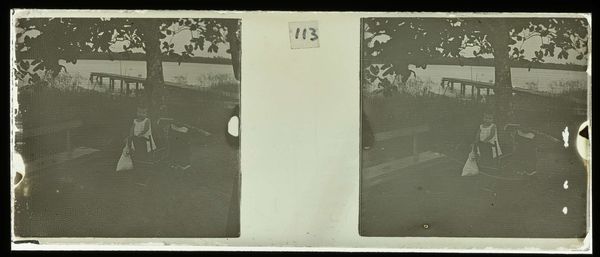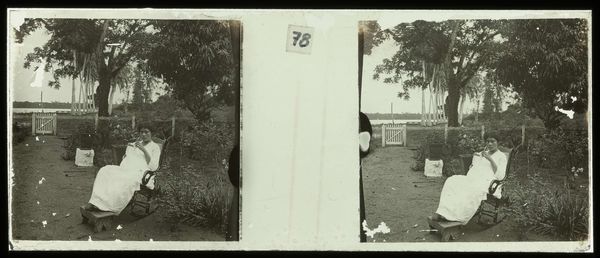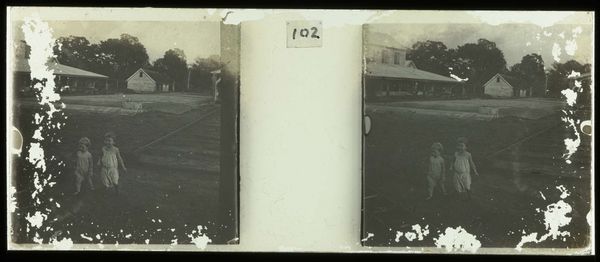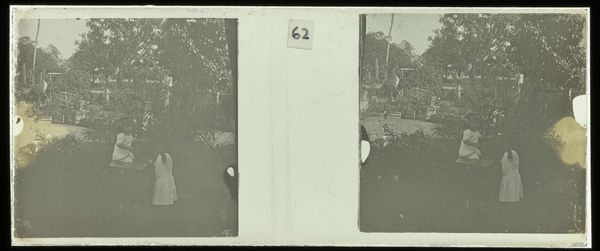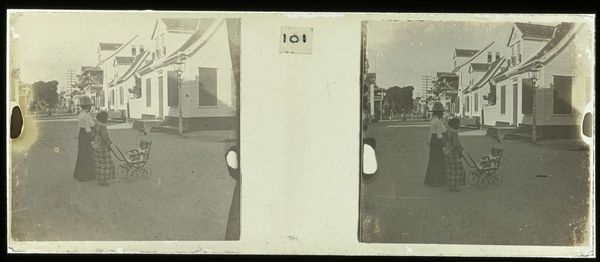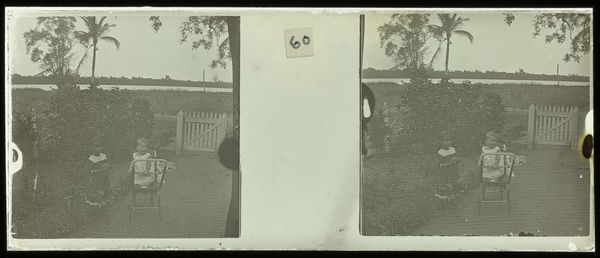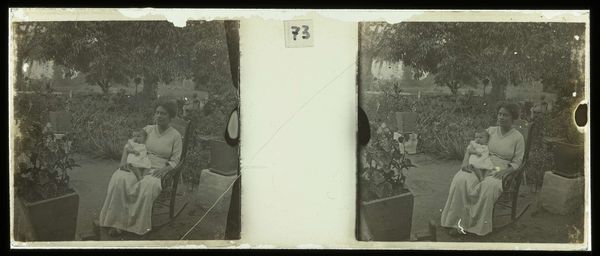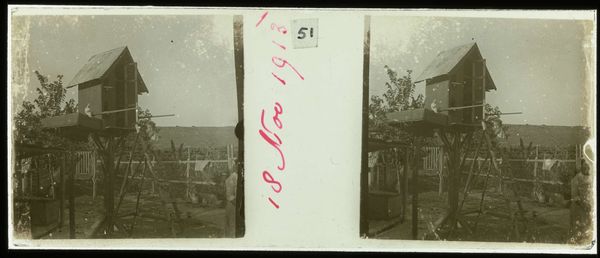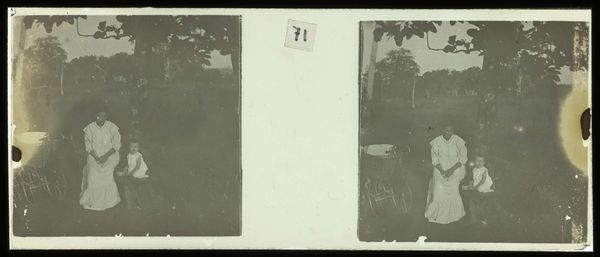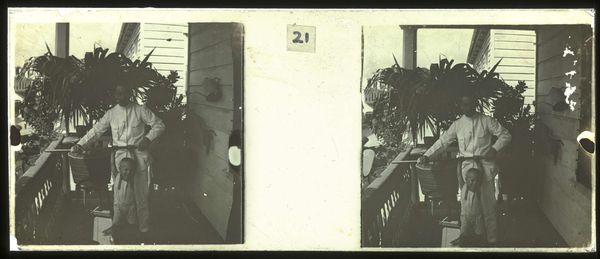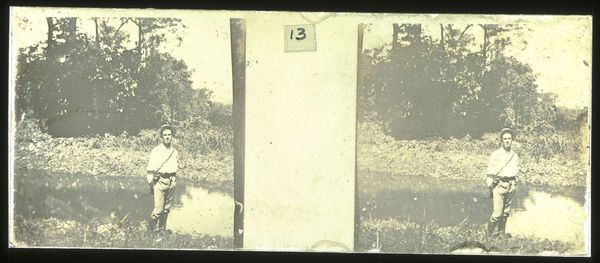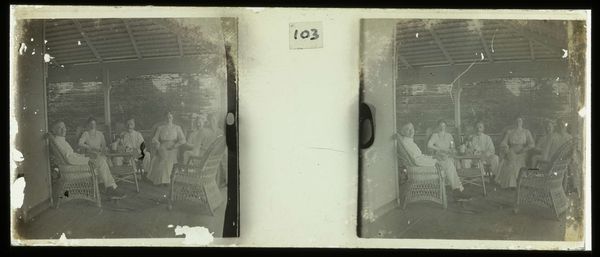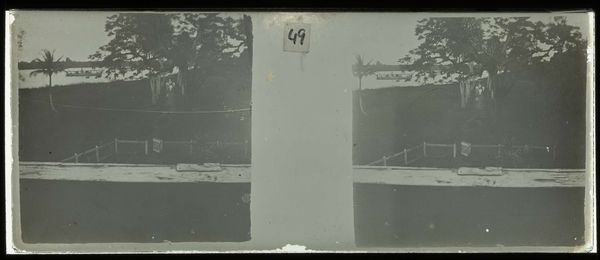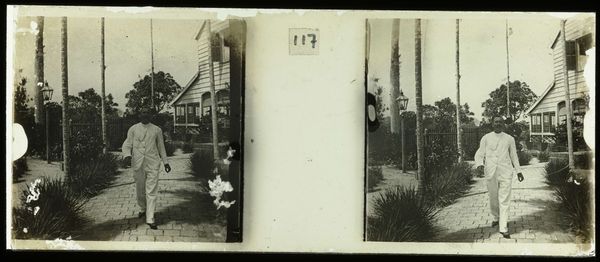
photography, albumen-print
#
portrait
#
landscape
#
photography
#
orientalism
#
albumen-print
#
realism
Dimensions: height 4.5 cm, width 10.5 cm
Copyright: Rijks Museum: Open Domain
Editor: Here we have Theodoor Brouwers’ photograph, "Lize Brouwers met zoon Gerard op Plantage Accaribo," sometime between 1913 and 1930. It's an albumen print, offering a hazy, dreamlike quality. The image has an intimate, almost domestic feel, but it seems charged with the unspoken. How do you interpret the layers of social context within this image? Curator: This albumen print captures more than just a mother and child in a garden. Consider the title mentioning "Plantage Accaribo." These plantations were enmeshed in a complex colonial system. This photo operates as both a personal portrait and a document reflecting a broader, often brutal, economic and social structure. What do you think this dual existence suggests? Editor: It's interesting, that tension between the personal and the political. Almost like a family snapshot concealing a more challenging story of colonialism. Were these kinds of images common? Curator: Exactly. Portraiture served several purposes. For those who commissioned portraits like this, they were ways to visualize and perhaps legitimize their presence and position. Photos like this one offered a specific kind of public face that promoted their lifestyle while ignoring the exploitation that supported it. Editor: So the choice of photography itself becomes a statement. What is presented, and more importantly what's not, feels incredibly deliberate now. Curator: Precisely. Images become a curated representation. We have to consider the power dynamics inherent in its creation and consumption, shaping both the reality it depicted and the way that reality was perceived. Editor: I’m beginning to look at this innocent-seeming image in a new, much more critical light. Thank you! Curator: And I’m grateful to see you apply these interpretive strategies! This work is now more evocative.
Comments
No comments
Be the first to comment and join the conversation on the ultimate creative platform.
